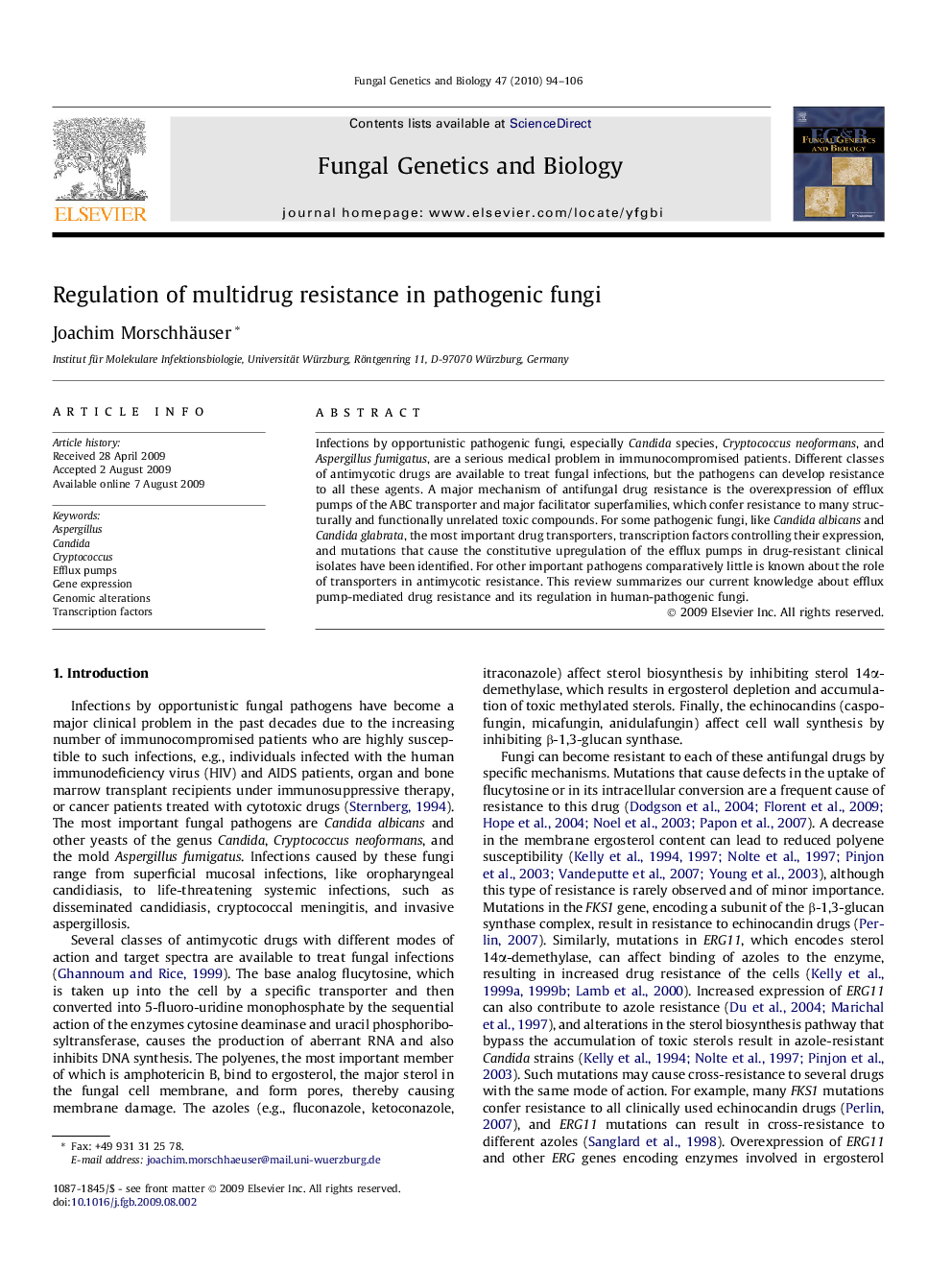| Article ID | Journal | Published Year | Pages | File Type |
|---|---|---|---|---|
| 10939600 | Fungal Genetics and Biology | 2010 | 13 Pages |
Abstract
Infections by opportunistic pathogenic fungi, especially Candida species, Cryptococcus neoformans, and Aspergillus fumigatus, are a serious medical problem in immunocompromised patients. Different classes of antimycotic drugs are available to treat fungal infections, but the pathogens can develop resistance to all these agents. A major mechanism of antifungal drug resistance is the overexpression of efflux pumps of the ABC transporter and major facilitator superfamilies, which confer resistance to many structurally and functionally unrelated toxic compounds. For some pathogenic fungi, like Candida albicans and Candida glabrata, the most important drug transporters, transcription factors controlling their expression, and mutations that cause the constitutive upregulation of the efflux pumps in drug-resistant clinical isolates have been identified. For other important pathogens comparatively little is known about the role of transporters in antimycotic resistance. This review summarizes our current knowledge about efflux pump-mediated drug resistance and its regulation in human-pathogenic fungi.
Keywords
Related Topics
Life Sciences
Biochemistry, Genetics and Molecular Biology
Cell Biology
Authors
Joachim Morschhäuser,
